Home>Home Maintenance>What To Do During A Home Inspection As A Buyer


Home Maintenance
What To Do During A Home Inspection As A Buyer
Modified: August 20, 2024
Ensure a smooth home buying process with our guide on what to do during a home inspection as a buyer. Learn essential home maintenance tips to make an informed decision
(Many of the links in this article redirect to a specific reviewed product. Your purchase of these products through affiliate links helps to generate commission for Storables.com, at no extra cost. Learn more)
Introduction
Welcome to the fascinating world of home inspections! Whether you’re a first-time homebuyer or a seasoned real estate investor, understanding the importance of a home inspection is crucial. A home inspection is a comprehensive examination of a property’s condition, performed by a professional inspector. It provides a detailed report of any potential issues or areas of concern, allowing you to make an informed decision about the purchase.
Buying a home is a significant investment, both financially and emotionally. It’s essential to ensure that the property you’re interested in is in good condition and meets your expectations. A thorough home inspection can help identify any hidden problems that may affect the value, safety, or functionality of the home.
During a home inspection, the inspector will examine various aspects of the property, including the structure, electrical systems, plumbing, HVAC systems, roofing, and more. By evaluating these areas, the inspector can identify any existing or potential issues, such as water damage, mold, faulty wiring, or structural problems.
While the seller may disclose some of these issues, a professional home inspection provides an unbiased and detailed assessment of the property’s condition. It’s important to remember that a home inspector is not there to pass or fail the property but rather to provide an objective evaluation of its current state.
By conducting a home inspection, you can gain valuable insights into the property before finalizing the purchase. This knowledge empowers you to make informed decisions and potentially negotiate repairs or price adjustments with the seller.
In the following sections, we will explore the essential aspects of a home inspection, from preparing for the inspection to evaluating the inspection report. We will also discuss common issues found during inspections and how to address them.
So, let’s dive in and discover what you need to know during a home inspection as a buyer!
Key Takeaways:
- Home inspections are crucial for understanding a property’s condition, identifying potential issues, and making informed decisions before purchasing a home. Working with a professional inspector and evaluating the inspection report are essential steps in the process.
- During a home inspection, it’s important to pay attention to common issues such as roofing problems, plumbing leaks, electrical deficiencies, and structural issues. Taking notes, seeking repair estimates, and negotiating repairs or price adjustments are key aspects of the post-inspection process.
Importance of a Home Inspection
A home inspection is a fundamental step in the home buying process. It provides you with an in-depth understanding of the property’s condition, allowing you to make an informed decision and protect your investment. Here are some key reasons why a home inspection is essential:
- Uncovering Hidden Issues: While a house may look great on the surface, there could be underlying problems that are not immediately noticeable. A home inspector is trained to identify potential issues such as structural damage, electrical issues, plumbing leaks, roof defects, and more. By uncovering these hidden problems, you can avoid costly surprises down the road.
- Ensuring Safety: A thorough home inspection assesses the safety of the property. It identifies any hazardous conditions, such as faulty wiring, mold infestations, or radon gas. Knowing about these potential dangers allows you to take appropriate measures to safeguard your family and ensure a healthy living environment.
- Evaluating the Property’s Value: A home inspection helps you assess the property’s value accurately. If significant issues are discovered during the inspection, you can factor in the cost of repairs or necessary renovations when determining the property’s worth. This knowledge enables you to negotiate a fair price with the seller.
- Planning for Future Maintenance: The inspection report provides valuable insights into the maintenance needs of the property. It highlights areas that may require attention in the near future, such as aging HVAC systems, deteriorating roofs, or outdated electrical systems. Understanding these maintenance requirements allows you to plan and budget for future repairs or upgrades.
- Peace of Mind: Buying a home can be a stressful process, especially if you’re uncertain about the property’s condition. A home inspection provides peace of mind by giving you a comprehensive understanding of the home’s strengths and weaknesses. Knowing that a professional has thoroughly evaluated the property can alleviate anxiety and help you move forward confidently with your purchase.
It’s important to note that a home inspection is not a pass or fail test. Instead, it provides valuable information that empowers you to make informed decisions. It is always recommended to hire a qualified and experienced home inspector to ensure a thorough evaluation of the property.
Now that you understand the importance of a home inspection, let’s delve into the preparation process to ensure a smooth and successful inspection.
Preparing for the Home Inspection
Preparing for a home inspection is crucial to ensure a smooth and efficient process. Here are some essential steps to help you get ready for the inspection:
- Schedule the Inspection: Coordinate with your real estate agent to schedule the home inspection as soon as possible. Inspections typically take place shortly after an offer is accepted, allowing enough time for any potential issues to be addressed.
- Notify the Seller: Inform the seller that you will be conducting a home inspection. It is important to work out a mutually convenient date and time for the inspection to take place. Cooperation between the buyer, seller, and their respective agents is essential throughout this process.
- Clear Access to the Property: Ensure that the inspector has easy access to all areas of the property, including the attic, crawl spaces, and utility rooms. Clear any clutter or obstacles that may impede the inspection process.
- Utilities and Services: Ensure that all utilities, such as water, gas, and electricity, are turned on and functioning properly. The inspector needs to test appliances, heating systems, electrical outlets, and plumbing fixtures during the inspection.
- Provide Relevant Documents: Gather any relevant documents related to the property, such as previous inspection reports, repair records, warranties, or permits. These documents can provide valuable information to the inspector and help identify any recurring issues.
- Arrange for Accompanying Key Individuals: If possible, have the seller or their representative present during the inspection. They may provide additional insights and address any questions directly. However, make sure to respect the inspector’s space and let them focus on their work.
- Plan for Sufficient Time: Keep in mind that a comprehensive home inspection can take several hours, depending on the size and complexity of the property. Plan your schedule accordingly to allow enough time for the inspection.
- Dress Comfortably: While you don’t need to be present for the entire inspection, it is advisable to dress comfortably in case you want to discuss any findings or ask questions towards the end of the inspection.
By following these preparation steps, you can ensure that the home inspection process goes smoothly and maximizes the inspector’s ability to assess the property. The next section will cover what items you should bring along to the inspection for better understanding and documentation.
What to Bring to the Home Inspection
When attending a home inspection, it’s helpful to come prepared with a few essential items. Here’s a checklist of what to bring to the home inspection:
- Notebook and Pen: Bring a notebook and pen to jot down any important observations, questions, or recommendations provided by the inspector. Taking notes during the inspection will help you remember the details and facilitate discussions with the inspector afterwards.
- Camera or Smartphone: It’s a good idea to bring a camera or smartphone to document any significant findings. You can take pictures or videos of areas of concern or items that may require further attention. However, make sure to ask for permission before taking photos inside the property.
- Flashlight: A flashlight can come in handy, especially for inspecting dark or hard-to-reach areas, such as the attic or crawl spaces. It can help you see things more clearly and identify potential issues that may not be visible under normal lighting conditions.
- Comfortable Shoes and Clothing: Wear comfortable shoes and clothing that allow you to move around freely and access different areas of the property. It’s important to dress appropriately for the weather conditions, as you may need to inspect the exterior of the home as well.
- Snacks and Water: Depending on the duration of the inspection, you may want to bring some snacks and water to keep yourself energized and hydrated. This will help you stay focused and attentive throughout the inspection process.
- Previous Inspection or Disclosure Reports: If you have any previous inspection reports or seller disclosure documents, bring them along to compare and cross-reference with the current inspection. This will help you identify if any issues from the previous report have been addressed.
- List of Questions and Concerns: Prepare a list of questions and concerns that you would like to discuss with the inspector. This way, you can ensure that all your queries are addressed during the inspection or in the post-inspection discussion.
- Realistic Expectations: Bring a positive attitude and realistic expectations to the home inspection. Understand that no property is perfect, and there may be minor issues that are common in older homes. The goal is to identify any major concerns or safety hazards that could affect the property’s value and your decision to proceed with the purchase.
Having these items with you during the home inspection will allow you to actively participate in the process and gather valuable information. Remember that the main focus is on understanding the property’s condition and addressing any significant issues that may arise. Stay engaged, ask questions, and collaborate with the home inspector to gain the most from the inspection.
Next, let’s dive into the home inspection process itself, so you know what to expect during the evaluation of the property.
Understanding the Home Inspection Process
The home inspection process is a thorough evaluation of a property’s condition conducted by a professional home inspector. Here’s a step-by-step guide to help you understand what to expect during the home inspection:
- Visual Examination: The home inspector will conduct a visual examination of the property’s exterior and interior. This includes assessing the foundation, walls, roof, windows, doors, and overall structural integrity. They will also examine the grading, drainage, and any visible signs of water damage or mold.
- Mechanical Systems: The inspector will inspect the property’s mechanical systems, including the electrical, plumbing, and HVAC (heating, ventilation, and air conditioning) systems. They will check for any electrical hazards, plumbing leaks or issues, proper functioning of fixtures, and the condition of the HVAC units.
- Appliances and Fixtures: The inspector will assess the condition and functionality of any included appliances such as stoves, dishwashers, and refrigerators. They will also test outlets, switches, and light fixtures to ensure they are in proper working order.
- Roof and Attic: The roof’s condition and its components (such as shingles, flashing, gutters) will be examined to identify any leaks, damage, or signs of wear. The inspector will also assess the attic for insulation, proper ventilation, and signs of pest infestation.
- Basement and Crawl Spaces: If applicable, the inspector will evaluate the basement and crawl spaces for signs of water intrusion, structural issues, foundation cracks, or any indications of pest activity.
- Additional Areas: Depending on the property, the inspector may also assess other areas such as the garage, deck, porch, or swimming pool. They will inspect these areas for safety concerns, structural soundness, and compliance with local building codes.
The home inspector will document their findings in a report, highlighting any issues discovered during the inspection. It’s important to remember that not all issues found during the inspection are major concerns. Some may be minor and easily addressed, while others may require further evaluation by a specialist or contractor.
As a buyer, it’s essential for you to be present during the inspection (or at least for the final portion) so the inspector can walk you through their findings and answer any questions you may have. This allows you to gain a better understanding of the property’s condition and the significance of any identified issues.
Stay tuned for the next section where we will discuss the importance of working with a professional home inspector to ensure a thorough and comprehensive assessment of the property.
Working with a Professional Home Inspector
When it comes to a home inspection, it is crucial to work with a qualified and experienced professional. A professional home inspector plays a vital role in ensuring a thorough and comprehensive evaluation of the property. Here’s why it’s essential to collaborate with a professional:
Expertise and Knowledge: Professional home inspectors have the expertise and knowledge to identify potential issues and assess the overall condition of a property. They are trained to spot subtle signs of damage or malfunction that an untrained eye may miss. Their experience allows them to recognize red flags and provide valuable insights into the property’s condition.
Thorough Evaluation: A professional home inspector will conduct a systematic and comprehensive evaluation of the property. They follow industry standards and guidelines, ensuring that no important aspect of the property goes unnoticed. Their thorough assessment covers everything from the structure to the mechanical systems and everything in between.
Objective Assessment: A professional home inspector offers an unbiased and objective assessment of the property. They do not have any vested interest in the outcome of the inspection, ensuring that their evaluation is fair and impartial. This objectivity is crucial in providing an honest and accurate report of the property’s condition.
Identification of Major Issues: Home inspectors focus on identifying significant issues that may affect the property’s value, safety, or functionality. They can differentiate between minor cosmetic concerns and more critical issues that require immediate attention. By highlighting these major issues, they enable you to make informed decisions and take appropriate actions.
Insight and Advice: A professional home inspector can provide valuable advice and recommendations regarding repairs, maintenance, and potential upgrades. They can help you understand the level of urgency for addressing certain issues and provide guidance on the best course of action. Their insight can help you plan for future repairs and navigate negotiations with the seller.
Clear and Detailed Report: After the inspection, the professional home inspector will provide you with a detailed report documenting their findings. This report outlines any issues discovered during the inspection, along with supporting photographs, descriptions, and recommendations. The report serves as a valuable reference in understanding the property and making informed decisions.
When selecting a home inspector, it’s important to research and choose someone who is reputable and certified. Look for inspectors who are members of industry associations and adhere to professional standards of practice. Additionally, consider reviews and recommendations from others who have worked with them in the past.
Remember, collaboration and communication with the home inspector are key. Attend the inspection (or at least the final part) to gain a firsthand understanding of the property’s condition. Ask questions, seek clarification, and discuss any concerns you have. The inspector’s knowledge and expertise can provide valuable insights, giving you the confidence to make sound decisions regarding the property.
Next, we will explore some important questions to ask during the home inspection to further enhance your understanding of the property’s condition.
Questions to Ask During the Home Inspection
During a home inspection, it’s important to actively participate and ask relevant questions to gain a deeper understanding of the property’s condition. Here are some questions to consider asking the home inspector:
- What are the most significant issues you’ve found during the inspection? This question allows the inspector to highlight any major concerns and give you a sense of the property’s overall condition.
- Are there any safety hazards or potential health risks in the house? It’s crucial to identify any safety hazards such as faulty electrical wiring, carbon monoxide leaks, asbestos, or mold that may pose a risk to your well-being.
- What are the potential causes and consequences of the issues you’ve identified? Understanding the root causes of the problems and their potential consequences will help you assess the severity and determine the best course of action.
- Are any of the issues identified likely to lead to further damage if left unaddressed? Some issues may start small but can escalate into more significant problems if not addressed promptly. It’s important to know if immediate attention is required to prevent further damage or costly repairs.
- Are there any indications of past repairs or renovations? Knowing the history of repairs or renovations performed on the property can give you insight into its maintenance and potential hidden issues.
- Are there any ongoing or recurring issues that need special attention? Some properties may have recurring issues that require ongoing maintenance or monitoring. Understanding these issues can help you plan for necessary maintenance and associated costs.
- Are there any concerns with the property’s structural integrity? Issues related to the foundation, framing, or load-bearing walls can significantly impact the property’s stability and safety. It’s important to address any structural concerns identified during the inspection.
- What is the life expectancy of major systems and components in the property? Knowing the estimated lifespan of systems such as the roof, HVAC, plumbing, or electrical systems can help you plan for future repairs and replacements.
- Is there evidence of water damage or moisture-related issues? Water damage can cause significant problems such as mold growth, rot, or structural damage. Understanding the extent and severity of any water-related issues is important for the long-term health of the property.
- Are there any specific maintenance recommendations for the property? The home inspector can provide advice on routine maintenance tasks to keep the property in good condition. This includes recommendations for maintaining systems, appliances, or the exterior of the property.
Remember, the home inspector is there to provide you with information and address your concerns. Don’t hesitate to ask any additional questions that you may have throughout the inspection. Their expertise and insights can help you make informed decisions about the property.
As you gather information during the inspection, it’s essential to document the findings. In the next section, we will discuss the importance of taking notes and pictures during the home inspection.
Bring a notepad and camera to document any issues. Ask questions and take your time inspecting the property. Don’t be afraid to request further inspections for specific areas.
Areas to Pay Special Attention to During the Home Inspection
During a home inspection, it’s important to pay special attention to certain areas of the property that may be more prone to issues or require closer examination. These areas often play a significant role in the functionality, safety, and long-term maintenance of the home. Here are some key areas to focus on during the inspection:
- Roof: Inspect the roof for any signs of damage, leaks, or missing shingles. Pay attention to the condition of the flashing, gutters, and downspouts, as they help channel water away from the property.
- Foundation and Structure: Examine the foundation for cracks, settlement issues, or signs of water infiltration. Look for any visible gaps or separations around windows, doors, and exterior walls that may indicate potential structural problems.
- Plumbing System: Check for any water leaks, water pressure issues, or signs of water damage around the plumbing fixtures, including sinks, faucets, toilets, and showers. Test the functionality of drains and look for any signs of plumbing leaks in the crawl spaces or basement.
- Electrical System: Inspect the electrical panel for proper functioning and safety. Check the condition of outlets, switches, and light fixtures. Look for any exposed or frayed wiring that may pose a safety hazard.
- Heating, Ventilation, and Air Conditioning (HVAC) Systems: Evaluate the condition and functioning of the HVAC systems, including the furnace, air conditioner, and ductwork. Ensure that the systems are properly maintained and in good working order.
- Insulation and Ventilation: Assess the insulation in the walls, attic, and crawl spaces for its type and condition. Proper insulation helps maintain energy efficiency and comfort in the home. Check for adequate ventilation in the attic to prevent moisture build-up.
- Exterior: Inspect the exterior of the property, including siding, paint, and any signs of termite or pest activity. Look for cracks in the masonry, rotting wood, or any other issues that may affect the durability and maintenance of the exterior components.
- Basement and Crawl Spaces: Pay attention to the condition of the basement or crawl spaces, as these areas are susceptible to water intrusion and mold growth. Look for signs of moisture, mold, or structural issues such as sagging beams or floor joists.
- Appliances and Fixtures: Test the functionality and condition of appliances included in the sale, such as the stove, dishwasher, refrigerator, and washer/dryer. Ensure that they are in proper working order and meet your expectations.
- Overall Maintenance: Assess the overall maintenance and upkeep of the property. Look for signs of neglect or deferred maintenance, as they may indicate potential hidden issues.
Paying close attention to these areas during the inspection will help you identify any potential issues or concerns that may affect your decision to purchase the property. Remember to ask questions and seek clarification from the home inspector regarding any specific concerns you may have.
As you proceed with the inspection, it’s crucial to document your findings. In the next section, we will discuss the importance of taking notes and pictures during the home inspection.
Taking Notes and Pictures During the Home Inspection
During a home inspection, it’s essential to take notes and pictures to document the inspector’s findings and ensure a comprehensive understanding of the property’s condition. Here’s why note-taking and photography are important during the inspection:
1. Documentation of Issues: Taking notes allows you to document any issues or concerns discovered during the inspection. By jotting down specific details, you can refer back to them later and have a record of the inspector’s observations.
2. Recall of Details: A home inspection can be overwhelming, with a lot of information presented in a relatively short amount of time. Taking notes helps you remember details such as the location of specific issues, the inspector’s explanations, and any recommended repairs or actions.
3. Clarity in Communication: By taking notes, you can accurately communicate your findings and concerns to the seller, real estate agent, or contractors involved in the transaction. Clear and concise notes make it easier to discuss the issues discovered and provide supporting evidence when necessary.
4. Comparison with Inspection Report: Your notes serve as a helpful reference point when comparing them with the formal inspection report provided by the inspector. This allows you to cross-reference the information and ensure all identified issues are accurately included in the report.
5. Future Planning and Budgeting: Documenting the condition of various components during the inspection helps you plan for future maintenance or repairs. You can prioritize necessary improvements and estimate associated costs more effectively with the guidance of your notes.
6. Visual Evidence: Alongside note-taking, taking pictures can provide visual evidence of the issues discovered during the inspection. Photographing areas of concern, visible damage, or potential safety hazards can provide additional support when discussing the findings with the seller or contractors.
7. Assistance in Decision Making: A combination of notes and pictures aids in making informed decisions about whether to move forward with the purchase, negotiate repairs or adjustments, or seek further professional opinions. The documented evidence gives you a clear understanding of the property’s condition and empowers you to make confident choices.
Remember, it is important to seek permission from the seller or the inspector before taking pictures inside the property. Respect their boundaries and only capture images that are necessary to support your documentation.
By actively taking notes and pictures during the home inspection, you ensure a comprehensive record of the inspection process and enable effective communication with all parties involved. This documentation will serve as a valuable resource as you move forward in the buying process.
Next, let’s discuss some common issues found during home inspections to further prepare you for the potential findings.
Things to Look Out for During the Home Inspection
During a home inspection, it’s important to keep an eye out for potential issues or areas of concern that may affect the property’s condition and your decision to purchase. Here are some key things to look out for during the inspection:
- Water Damage: Look for any signs of water damage, such as stains on ceilings or walls, warped or discolored flooring, or a musty odor. Water damage can indicate leaks, plumbing issues, or inadequate drainage, which could lead to further problems like mold growth or structural damage.
- Mold and Mildew: Check for any visible signs of mold or mildew, especially in moist areas such as bathrooms, basements, or crawl spaces. Mold infestation can pose health risks and may require professional remediation.
- Structural Issues: Pay attention to cracks in the foundation, walls, or ceiling, as they can indicate potential structural problems. Look for uneven floors or doors that don’t close properly, as these could be signs of foundation settling or other structural issues.
- Electrical Problems: Watch for outdated or faulty electrical systems, such as exposed wiring, improperly installed outlets, or non-functioning light switches. These issues can pose safety hazards and may require immediate attention from a licensed electrician.
- Plumbing Concerns: Check for any leaks, water pressure issues, or signs of corrosion in the plumbing system. Test faucets, showers, and toilets to ensure they operate properly and there are no hidden leaks in the pipes or fixtures.
- Heating and Cooling Systems: Assess the functionality and condition of the heating and cooling systems. Look out for any signs of malfunctioning HVAC units, inadequate insulation, or ductwork issues that could result in uneven heating or cooling throughout the property.
- Roof Damage: Inspect the roof for missing shingles, damaged flashing, or signs of wear and tear. These issues can lead to water intrusion, leaks, and further damage to the property if not addressed promptly.
- Problems with Windows and Doors: Check for proper functioning of windows and doors, ensuring they open, close, and lock correctly. Look for any cracks or gaps that could indicate air leakage, issues with insulation, or potential security concerns.
- Pest Infestations: Look for signs of pest infestations, such as droppings, chewed wood, or visible damage to the property. Common pests include termites, rodents, and wood-boring insects, which can cause significant damage if left untreated.
- Insufficient Insulation: Assess the insulation levels in the walls, attic, and crawl spaces. Inadequate insulation can lead to energy inefficiency, temperature fluctuations, and increased utility bills.
These are just a few examples of potential issues to be aware of during the home inspection. However, it’s important to remember that not all findings may be deal-breakers. Some issues can be addressed with repairs or negotiations with the seller, while others may require more careful consideration based on their severity and impact on the property.
If you notice any concerns or have questions during the inspection, don’t hesitate to ask the home inspector for clarification. Their expertise can provide valuable insights and help you better understand the significance of any issues discovered.
Next, let’s explore some common issues that are frequently found during home inspections.
Common Issues Found During Home Inspections
Home inspections often reveal a range of issues, some of which are common across many properties. While not every issue is a cause for major concern, being aware of these common findings can help you make informed decisions. Here are some common issues frequently found during home inspections:
- Roofing Problems: Roof issues are common, including missing or damaged shingles, leaks, improper flashing, or inadequate ventilation. These issues can lead to water damage, mold growth, and structural damage if not addressed.
- Plumbing Leaks: Plumbing leaks are often uncovered during inspections. These leaks can occur in supply lines, drainpipes, or fixtures, potentially causing water damage, mold growth, and compromised structural integrity.
- Electrical Wiring Deficiencies: Home inspectors frequently discover electrical issues like overloaded circuits, faulty wiring, ungrounded outlets, or unsafe electrical panel installations. These problems pose fire and safety hazards and require immediate attention from a qualified electrician.
- Improper Ventilation: Inadequate ventilation, especially in areas like bathrooms, attics, and crawl spaces, can lead to excess moisture and subsequent mold growth. Insufficient ventilation can also impact energy efficiency and create uncomfortable living conditions.
- Faulty HVAC Systems: Heating, ventilation, and air conditioning (HVAC) systems are prone to issues such as improper installation, inadequate maintenance, or malfunctioning components. A malfunctioning HVAC system can result in poor indoor air quality, uncomfortable temperatures, and high utility bills.
- Structural Problems: Structural issues may include foundation cracks, sagging floors, or walls out of plumb. These problems can be indicative of foundation settlement, poor construction, or water damage, and may require further evaluation by a structural engineer.
- Mold and Mildew: Home inspections often reveal the presence of mold and mildew, especially in areas with moisture problems. Mold can cause health issues and damage to building materials, requiring professional remediation to address the root cause and prevent further growth.
- Water Damage: Water damage can result from various sources, such as leaky roofs, plumbing issues, or inadequate drainage. It can lead to structural damage, rot, mold growth, and compromised building materials.
- Inadequate Insulation: Poor insulation, particularly in attics and exterior walls, can result in energy inefficiency and temperature fluctuations. It can also impact the comfort and efficiency of heating and cooling systems.
- Deferred Maintenance: Inspections often uncover deferred maintenance or neglect, such as peeling paint, crumbling masonry, or overgrown landscaping. These issues may indicate a lack of regular upkeep and potential underlying problems.
It’s important to note that the presence of these common issues does not necessarily mean the property is unlivable or unsuitable for purchase. The severity and impact of each issue should be evaluated in conjunction with the overall condition of the property. Some issues may be easily remedied, while others may require more significant repairs and negotiation with the seller.
Understanding these common issues can help you be prepared and make informed decisions during the home inspection process. The inspection report will provide a detailed overview of the findings, allowing you to further evaluate and address any concerns.
Next, let’s explore how to evaluate the home inspection report and navigate repairs or price adjustments based on the findings.
Evaluating the Home Inspection Report
The home inspection report is a crucial document that summarizes the findings and recommendations of the inspection. Evaluating the report thoroughly will help you understand the property’s condition and guide your decision-making process. Here’s how to assess the home inspection report effectively:
- Read the Report Carefully: Take the time to read the entire report carefully, paying attention to both the inspector’s comments and any accompanying photographs. Understand the language used, and don’t hesitate to ask the inspector for clarification if you come across any unfamiliar terms or descriptions.
- Focus on Major Concerns: Identify any major concerns highlighted in the report. These could include significant structural issues, safety hazards, or costly repairs. These concerns may require immediate attention and should be given priority in your decision-making process.
- Consider the Overall Picture: Look for patterns or recurring issues mentioned in the report. Assess the cumulative impact of multiple minor issues, as they may collectively indicate a more significant problem or a lack of proper maintenance over time.
- Understand the Inspector’s Recommendations: Pay close attention to the inspector’s recommendations provided in the report. These may include suggestions for further evaluations, repairs, or maintenance tasks. Consider whether you have the time, resources, and willingness to address these recommendations.
- Review Required Repairs: Take note of the repairs identified in the report and evaluate their potential cost and impact. Determine if you have the financial means and willingness to undertake these repairs. Some repairs may be expected as part of homeownership, while others may require negotiation with the seller.
- Seek Specialist or Contractor Opinion: If the report identifies specific concerns or recommends further evaluations, consider seeking opinions from specialists or contractors in those areas. This additional expertise can help you assess the extent of the problem and estimate the associated costs more accurately.
- Determine Negotiation Strategies: Based on the findings in the report, decide your approach for negotiations with the seller. You can either request repairs to be completed before the closing or negotiate a price adjustment or concession to account for the necessary repairs. Be prepared to prioritize your concerns and have clear communication with your real estate agent.
- Weigh Report Findings Against Your Tolerance: Consider your own risk tolerance and expectations for the property. Some issues identified in the report may be acceptable to you and fall within your comfort level, while others may be deal-breakers. Assess how the reported findings align with your long-term plans for the property.
Remember, the home inspection report is a valuable tool for understanding the property’s condition and making informed decisions. It provides you with a comprehensive assessment of the property’s strengths, weaknesses, and potential risks.
If you have any questions or concerns about the report, don’t hesitate to discuss them with the home inspector or seek advice from your real estate agent. Their expertise can provide valuable insights and guidance as you navigate the next steps in the home buying process.
Now, let’s move on to exploring how to negotiate repairs or price adjustments based on the findings of the home inspection.
Negotiating Repairs or Price Adjustments
After reviewing the home inspection report and identifying necessary repairs or issues, it’s time to consider negotiation strategies with the seller. Here are some key steps to help you navigate the process of negotiating repairs or price adjustments:
- Prioritize the Issues: Determine which issues from the inspection report are your highest priorities. Focus on major concerns that affect the property’s safety, structural integrity, or functionality. These will form the foundation of your negotiation discussions.
- Get Repair Estimates: If repairs are needed, obtain estimates from qualified contractors or specialists to understand the potential costs involved. These estimates provide evidence and support for your negotiation requests.
- Consult with Your Real Estate Agent: Discuss the inspection findings and your desired negotiation approach with your real estate agent. They can provide guidance based on their expertise and knowledge of the local market. Your agent can help you determine a reasonable course of action and represent your interests during negotiations with the seller.
- Decide on Your Negotiation Strategy: Consider whether you want to request the seller to make repairs before closing or if you prefer a price adjustment or concession to account for the necessary repairs. Your strategy will depend on the specific circumstances and your expectations for the property.
- Present Your Proposal Clearly: Prepare a clear and concise proposal that outlines the requested repairs or price adjustments. Provide supporting documentation, such as the inspection report and repair estimates, to strengthen your case.
- Be Reasonable and Flexible: Approach negotiations with a cooperative mindset. Be open to alternative solutions that may satisfy both parties. While you have the right to request repairs or adjustments, being flexible can help maintain a positive and collaborative atmosphere.
- Consider Seller’s Perspective: Put yourself in the seller’s shoes and consider their motivations. Understanding their situation can help you craft a negotiation strategy that appeals to their interests as well. Find common ground and work towards a mutually beneficial outcome.
- Be Prepared for Counteroffers: The seller may counter your proposal with their own suggestions. Evaluate counteroffers carefully and consider their reasonableness in relation to the inspection findings. Be prepared to negotiate further or seek compromise if needed.
- Get Agreements in Writing: Once an agreement is reached, ensure that all negotiated repairs or adjustments are documented in writing and incorporated into the purchase contract. Clarify timelines and expectations to ensure a smooth resolution.
Remember, successful negotiations are built on effective communication, a clear understanding of the inspection findings, and a willingness to find mutually satisfactory solutions. Work closely with your real estate agent and maintain open lines of communication with the seller or their representative throughout the negotiation process.
In the end, the goal is to reach an agreement that addresses the necessary repairs or price adjustments while allowing you to proceed with the purchase of the property with confidence. A fair and reasonable negotiation can help ensure a positive outcome for all parties involved.
Next, we’ll conclude with some final thoughts and closing remarks to wrap up the topic of home inspections.
Final Thoughts and Closing Remarks
As you reach the end of this guide on home inspections, it’s important to remember a few key points. A home inspection is an integral part of the home-buying process, providing you with crucial insights into the condition of the property. By understanding the importance of a home inspection and being prepared for the process, you can confidently navigate the evaluation of a potential new home.
Throughout the inspection, working with a professional home inspector is essential. Their expertise, knowledge, and objective assessment can help identify any existing or potential issues that may affect the property’s value, safety, or functionality.
During the inspection, pay special attention to key areas and be mindful of common issues that may arise. Take notes and pictures to document the findings and facilitate future discussions and decision-making.
Evaluating the home inspection report is a critical step in the process. Understanding the report, prioritizing issues, and seeking professional opinions as necessary will enable you to make informed decisions about repairs or price adjustments.
When negotiating repairs or price adjustments, maintain clear communication with your real estate agent and be prepared to find common ground with the seller. Flexibility and reasonableness can lead to win-win solutions.
Ultimately, the purpose of a home inspection is to ensure that you’re making a well-informed decision about the property you’re considering purchasing. The inspection report and subsequent negotiations can help you assess the property’s condition, mitigate potential risks, and plan for future maintenance and repairs.
Remember, a home inspection is just one part of the larger process of buying a home. Work closely with your real estate agent and other professionals involved in the transaction to ensure a smooth and successful home buying experience.
Armed with the knowledge gained from this guide, you’re now ready to approach home inspections with confidence, actively participating in the process and making informed decisions along the way. Happy house hunting!
Frequently Asked Questions about What To Do During A Home Inspection As A Buyer
Was this page helpful?
At Storables.com, we guarantee accurate and reliable information. Our content, validated by Expert Board Contributors, is crafted following stringent Editorial Policies. We're committed to providing you with well-researched, expert-backed insights for all your informational needs.


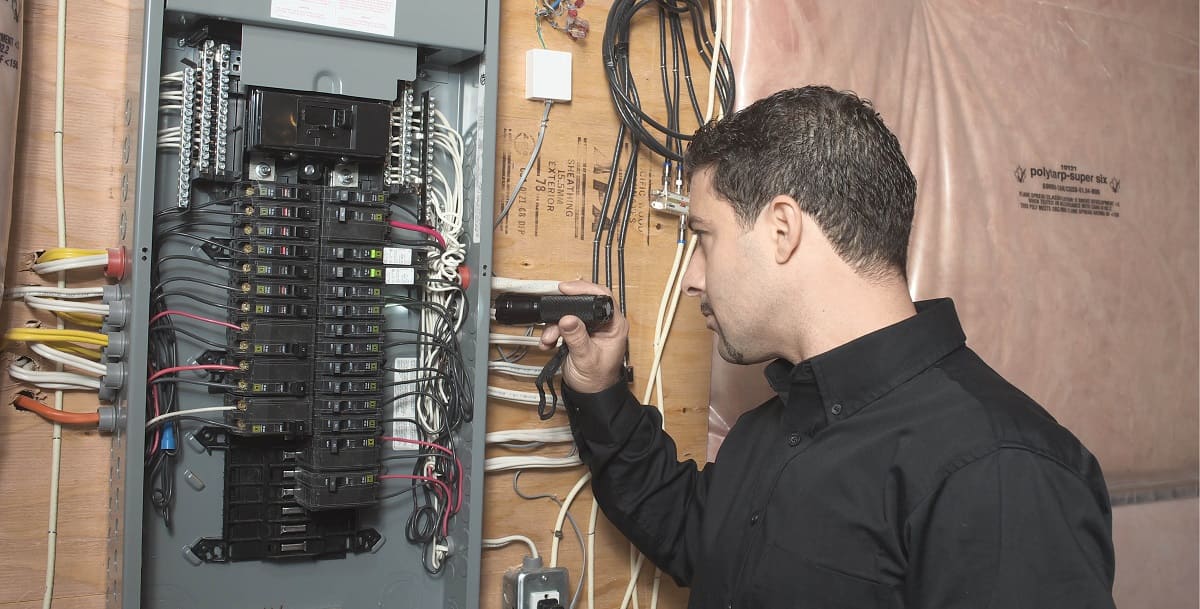

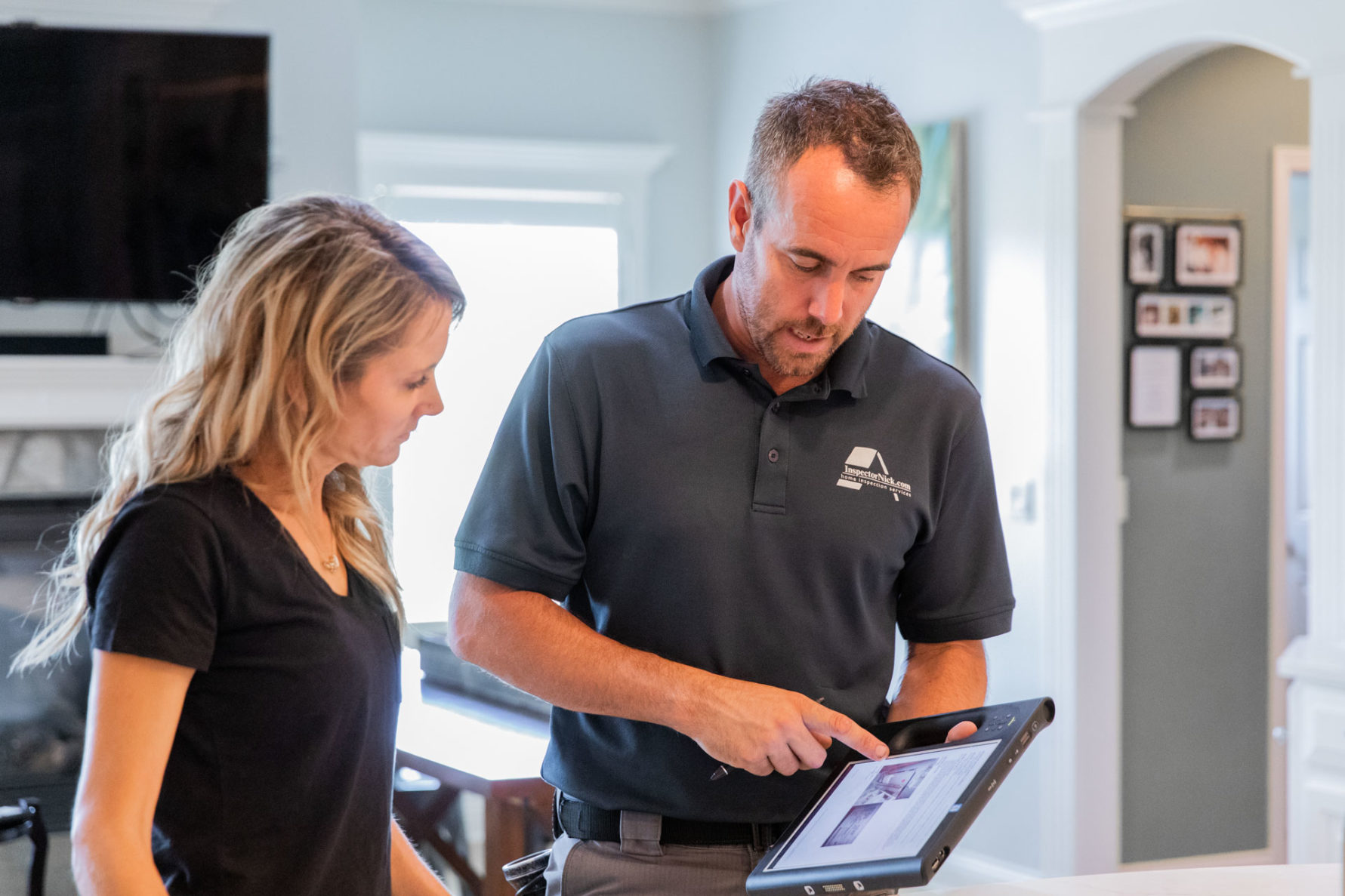
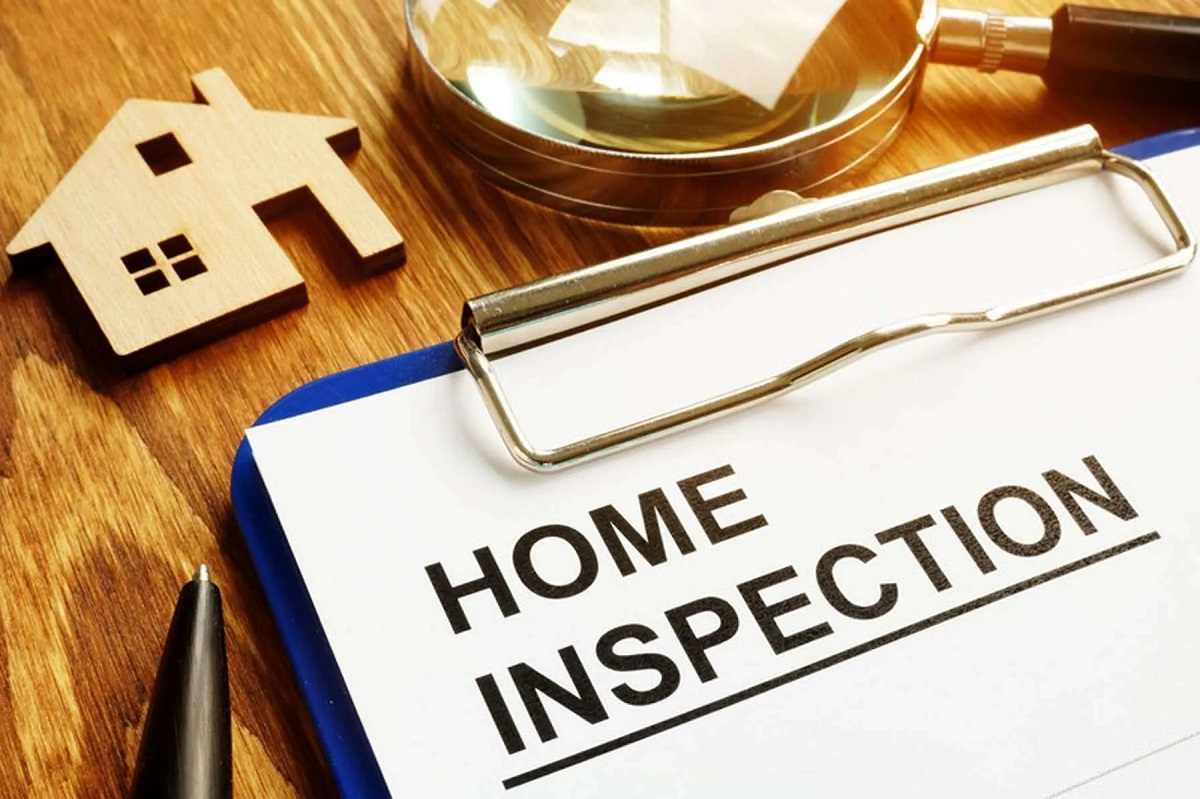
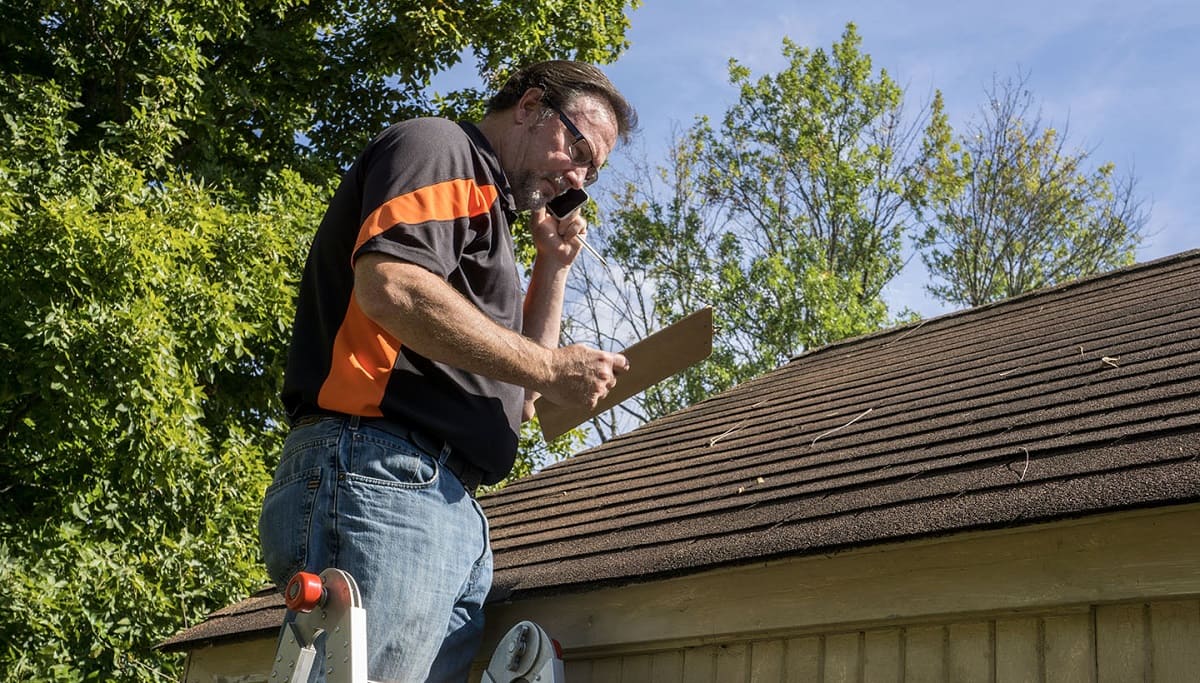
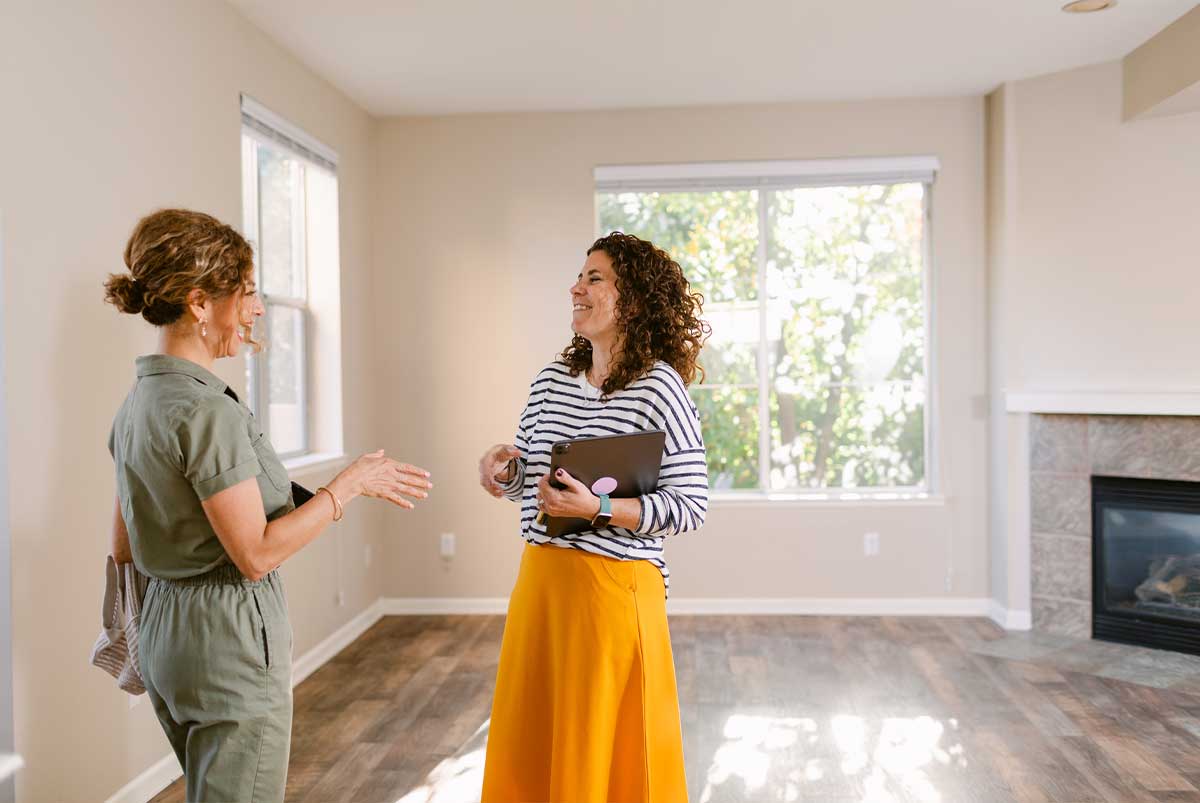
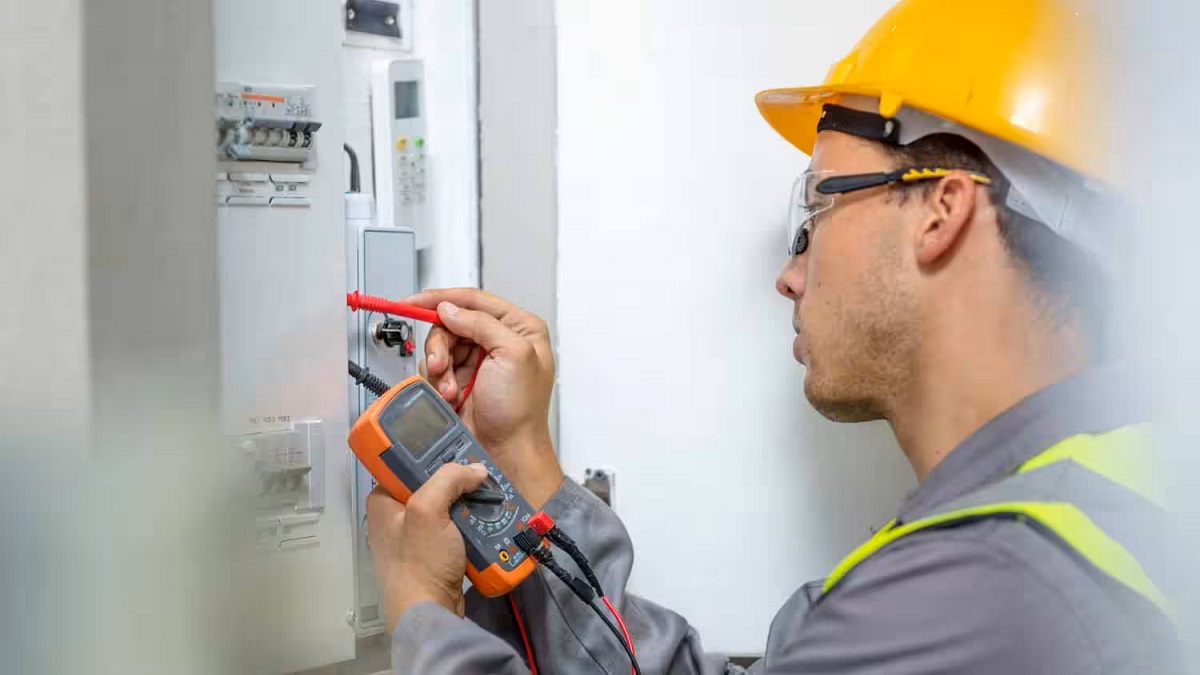
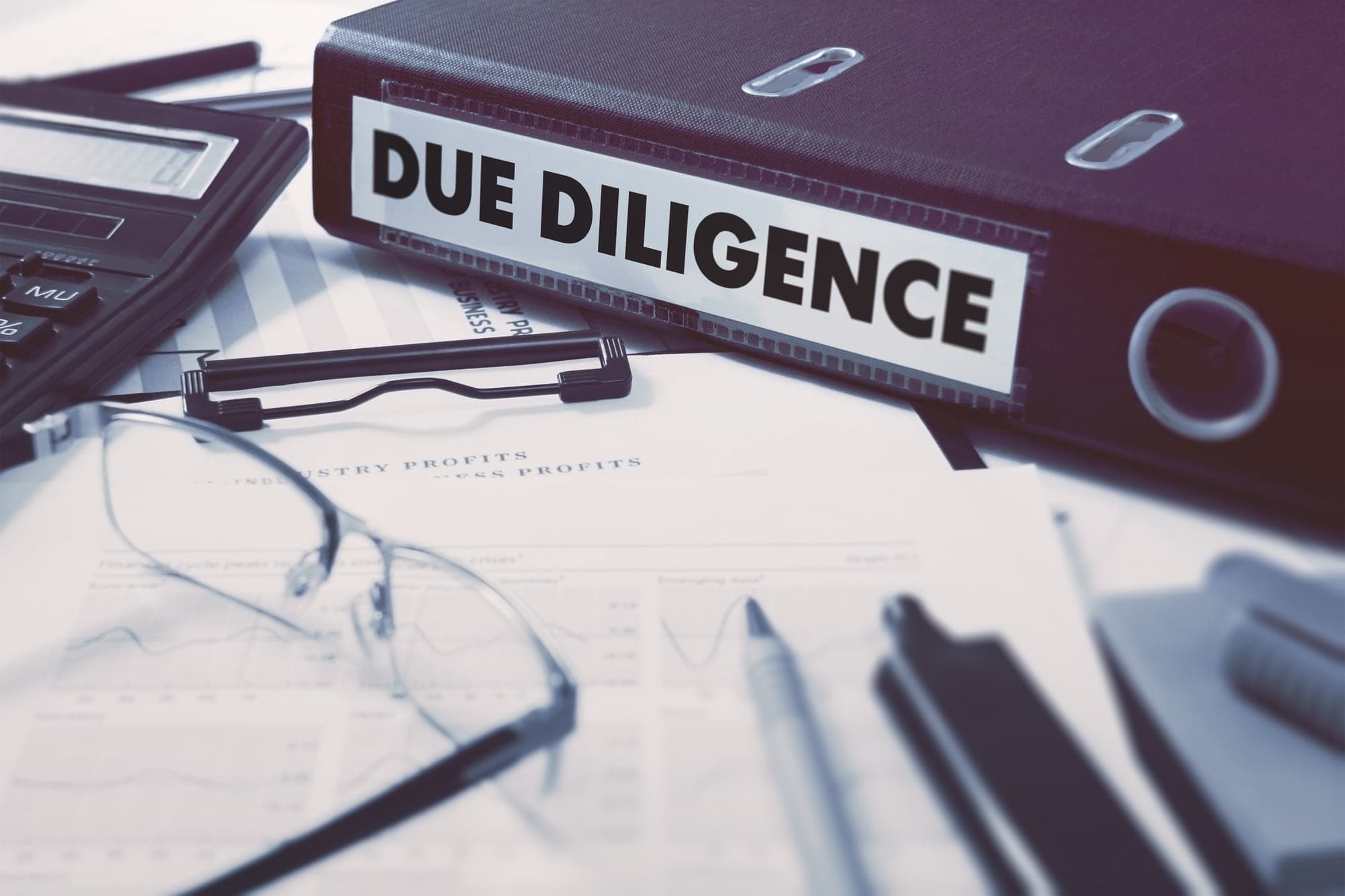
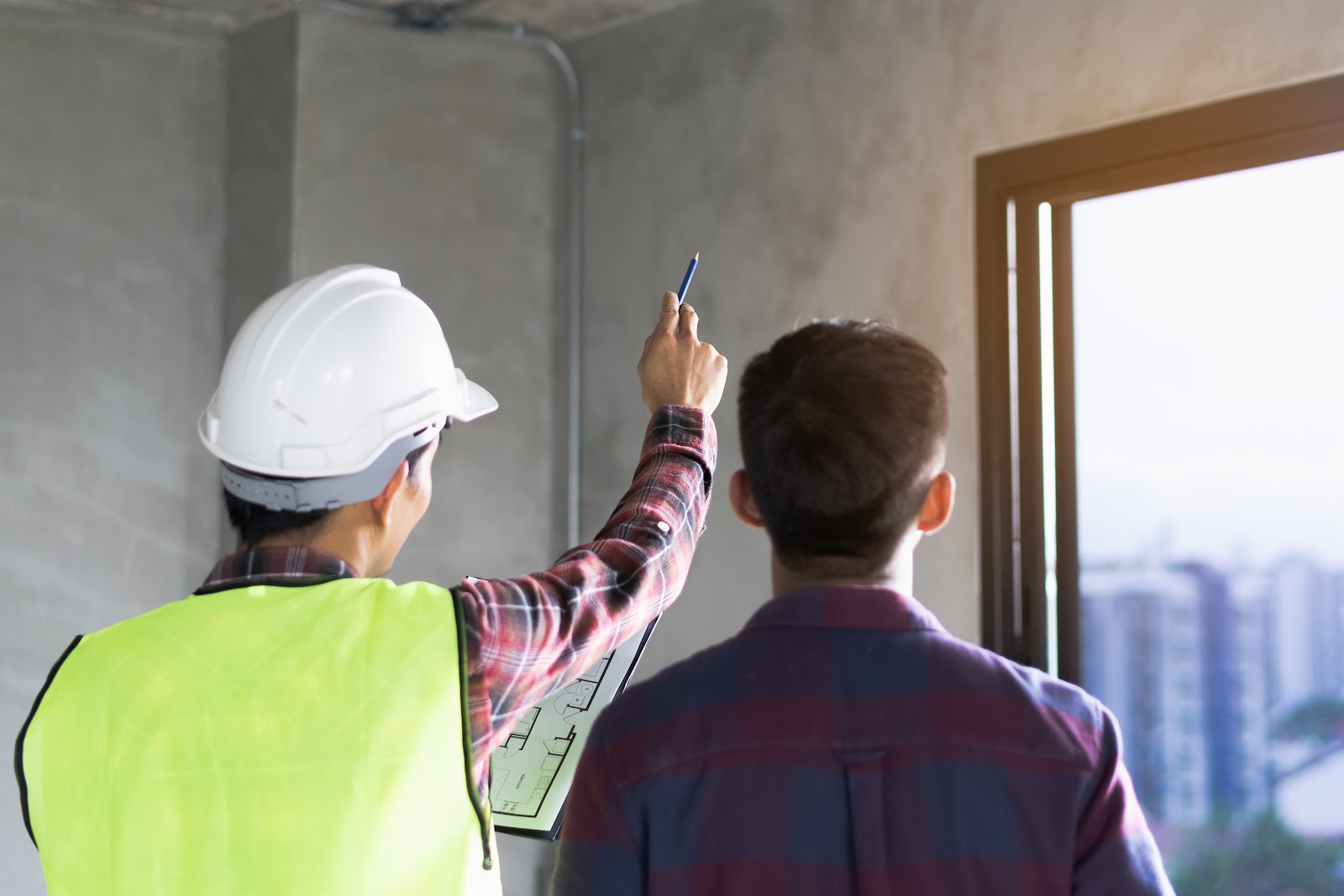


0 thoughts on “What To Do During A Home Inspection As A Buyer”